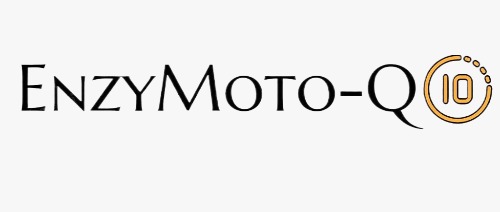- Open hour - 8:00 am - 05:00 pm
- Near +91 8604598722
- akimotopharmaceuticals@outlook.com
Enzymoto -Q10

Enzymoto -Q10
Coenzyme Q10, commonly known as CoQ10, is a naturally occurring compound found in the cells of the body. It plays a crucial role in the production of energy within cells and also functions as an antioxidant. CoQ10 is available as a dietary supplement, and while it's not a drug in the traditional sense, it is used for various health purposes. Here's some information about the use of Coenzyme Q10:
1. Cellular Energy Production:
CoQ10 is a key component in the electron transport chain, a process that occurs in the mitochondria of cells. This process is essential for the production of adenosine triphosphate (ATP), the primary energy currency of cells.
2. Antioxidant Properties:
CoQ10 also acts as an antioxidant, helping to neutralize free radicals that can cause cellular damage. This antioxidant function is important for overall cellular health and may contribute to the aging process.
3. Dietary Sources:
CoQ10 is naturally present in certain foods, including meat, fish, and whole grains. However, the amounts obtained through diet may not be sufficient for therapeutic purposes, leading to the use of supplements.
4. Health Conditions and CoQ10:
Heart Health: CoQ10 has been studied for its potential benefits in cardiovascular health. Some research suggests that it may help improve symptoms in certain heart conditions, such as heart failure and angina.
Statins and CoQ10: Some individuals taking statin medications to lower cholesterol levels may experience a reduction in CoQ10 levels, and supplementation may be considered.
Migraine Prevention: CoQ10 has been explored as a preventive measure for migraines, with some studies suggesting potential benefits.
Neurodegenerative Diseases: There is ongoing research into the role of CoQ10 in neurodegenerative diseases, such as Parkinson's disease, but more studies are needed to establish its effectiveness.
5. CoQ10 Supplements:
CoQ10 is available in supplement form, including ubiquinone and ubiquinol, which are two different forms of the compound.
Supplements may be taken orally, and the recommended dosage can vary based on the individual's health condition and the purpose of supplementation.
6. Safety and Side Effects:
CoQ10 supplements are generally considered safe for most people when taken as directed.
Common side effects may include gastrointestinal symptoms such as nausea or diarrhea.
Individuals with certain medical conditions or those taking specific medications should consult with their healthcare providers before starting CoQ10 supplementation.
7. Consultation with Healthcare Provider:
It is important to consult with a healthcare provider before starting CoQ10 supplements, especially if individuals are pregnant, breastfeeding, or have underlying health conditions.
CoQ10 may interact with certain medications, including blood thinners and diabetes medications, and healthcare providers can provide guidance on potential interactions.
8. Considerations for Athletes:
Some athletes and individuals engaged in intense physical activity may use CoQ10 supplements based on the belief that it may enhance exercise performance and recovery. However, more research is needed in this area.
In summary, Coenzyme Q10 is a naturally occurring compound with important functions in cellular energy production and antioxidant defense. While it's available as a supplement and has been studied for various health conditions, its use should be approached with caution, and individuals are encouraged to consult with their healthcare providers to determine the appropriateness and dosage based on their specific health needs.

